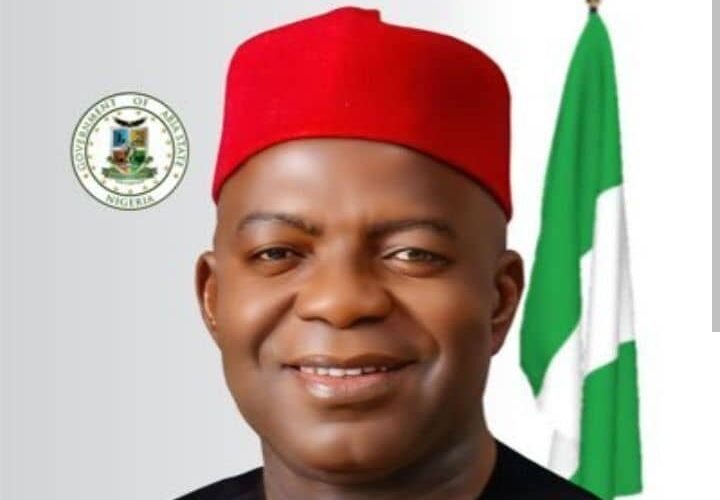The Otti Ledger: Balancing Abia’s Political Books for a 2031 Reckoning
A consideration of the political trajectory of Abia State towards the year 2031 necessitates a dispassionate analysis of its prevailing economic and political currents, viewed through a philosophical lens that transcends the immediate fray of partisan contention. The present administration of Dr. Alex Otti provides a critical fulcrum upon which this future will pivot, not merely for its policy directives but for the underlying philosophical shift it represents. To prognosticate the landscape of 2031 is to engage with the dialectic between entrenched political traditions and an incipient technocratic idealism.
The contemporary Abia economy, as chronicled in state publications and policy documents, is framed by the government as being in a foundational phase of reconstruction. The intense focus on the settlement of historical debts, the aggressive pursuit of infrastructural regeneration in Aba and Umuahia, and the publicized audits of state finances are not merely fiscal actions; they are profound philosophical statements. They represent an attempt to re-establish the social contract, which, in the Hobbesian sense, has been rendered fragile by a history of perceived breach. The government’s narrative, accessible through its official communication channels, is one of restoring trust by first dismantling the architecture of opacity. This foundational work, while economically significant in unclogging the engines of commerce, is politically transformative. By 2031, the electorate’s expectation may well have shifted from a patronage-based relationship with the government to one demanding measurable accountability as a non-negotiable premise. The political landscape will thus be shaped by a populace that is, in theory, less susceptible to the short-term allure of clientelism and more attuned to the long-term dividends of transparency.
A philosophical parallel can be drawn from Dr. Otti’s background in the banking sector. The world of high finance, at its ideal, operates on a bedrock of calculable risk, fiduciary responsibility, and performance-based valuation. A bank that fails to maintain liquidity, extend credible credit, and generate profit faces an existential crisis and a run on its deposits. Otti’s administration appears to be importing this ethos into the governance sphere. The state is being treated as a corporate entity in need of a turnaround, where “bad debt”—both financial and moral—must be cleared from the balance sheet. This is a utilitarian approach, aiming for the greatest good for the greatest number through efficient resource allocation. However, the philosophical tension here is inescapable. Politics, particularly in the Nigerian context, is not a pure science of profit and loss; it is an arena of complex human relations, ethnic solidarities, and deeply ingrained patrimonial systems. The 2031 political contest will likely be a referendum on this very importation of technocratic logic. Will the “Otti model,” if successful in delivering tangible infrastructure and economic revival, have legitimized a new form of leadership that prioritizes managerial competence over political lineage? Or will the resilient forces of the old political ecosystem, which operate on a different set of anthropological assumptions about the voter, adapt and co-opt this new language?
The advice to both politicians and technocrats in Abia State, if they wish to be relevant in the 2031 landscape, is to come clean in the most profound sense of the term. This extends beyond mere financial probity to an epistemological clarity about the purpose of governance. Politicians must evolve from being dispensers of favor to architects of sustainable systems. Their currency must transition from momentary gratification to enduring legacy. For technocrats within the government, the mandate is to ensure that their expertise does not become a new form of elitist alienation. The data-driven, project-focused governance must be communicated and felt in a way that resonates with the everyday lived experience of the Abia citizen, lest it be dismissed as a sterile, disconnected exercise.
The prevailing sentiment that Governor Otti will surprise many in a positive light is a hypothesis that will be tested by the material conditions of the state in the coming years. If the foundational works currently underway—the road rehabilitations, the case of pension arrears, the attempts to attract serious private investment—culminate in a visibly transformed economic reality by 2027, the surprise will not be in the governor’s personal integrity, but in the demonstrable power of a altered governance paradigm. This would set a formidable precedent, raising the bar for all subsequent aspirants to power. The 2031 political arena would then be populated by candidates who are compelled to lead with their credentials, their blueprints, and their record of public service, rather than solely on the strength of political godfathers or ethnic calculus.
In conclusion, the Abia State of 2031 will be the product of a grand philosophical experiment underway today. It is the contest between the homo economicus of technocratic idealism and the homo politicus of entrenched realpolitik. The landscape will likely be a hybrid—a system where the demand for performance has become mainstream, but the path to power still requires navigating the complex social fabric of the state. The ultimate surprise may be that the most successful politician of that future will be the one who can masterfully synthesize managerial competence with political sagacity, thereby fulfilling the renewed social contract that is currently being, with great intent, drafted in the state today.

AProf Chukwuemeka Ifegwu Eke







